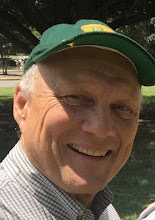My rain gauge caught 11 inches of rain already, and I am still trapped inside by trains of thunderstorms. The choking smoke from a wildfire in a marsh in East New Orleans combined with the rains of Tropical Storm Lee to make for an interesting backyard experience. Only in south Louisiana where God never completed the separation of water from land do such disparate disasters overlap.
I thought my house was on fire the first time I smelled the smoke. The ceiling fan in the small alcove outside my back door apparently sucked in the smoke. I searched the attic, garage, and every nook and cranny looking for flames. Finding none, I headed out into the neighborhood on my bicycle. A neighbor was the first to inform me of the fire in the swamp. After that it became front page news.
Marsh fires smolder in the peat moss below ground as well as in the reeds, bushes and trees. Drowning such a fire requires a lot of water. At first the smoke was captured and tamped down by the falling rain of Lee. Only after I recorded a full two inches of rain in my rain gauge did a visit to the backyard smell smoke free.
Every region endures some of nature’s surprises. Blizzards and landslides do not threaten us who live behind the levees. Marsh fires and tropical storms, however, occasionally disrupt life as we know it here below sea level. Rarely in my years here have these two, fire and rain, been mixed to create such a curious vaporous swirl.
We are living through a lesson of divine providence. Lightning started the great fire that burned our eyes, irritated our throats, and sent many of us to the doctor looking for relief. No human can take credit for that electrical bolt from a cloud. Yet I wonder how many nutrias, natural enemies of our levees, perished in the marsh fire? Maybe more than thousands of hunters could bag in our recent state-sponsored nutria hunt.
And the tropical storm which suddenly emerged over warm Gulf of Mexico waters and doused the stubborn fire was likewise beyond our power to create. Yet it did us a service by suffocating the flames.
We all complain about the weather, and I am sure we will continue to do so. We wish we could have sent TP Lee to Central Texas where 10 inches of rain would have provided great relief from a drought that threatens the very fabric of their agricultural industries. Had we been able to sell this storm, Texas would have paid top dollar for it, as one of my Texas brothers observed.
Towers of swirling smoke and rain wrap an impenetrable mystery beyond our sight and thought. No aircraft can invade its eye nor any radar uncover its path. Like the ancient sufferer Job we must confess, “Surely I spoke of things I did not understand, things too wonderful for me to know” (Job 42:3).
A sense of wonder and awe should grip us as visibility drops and we pass through smoke and mist. This curious blend assaults our senses and our comprehension, and we are forced to acknowledge the limits that we so often ignore.
Mountains may stand guard over human presumption and cast their shadows upon the feeble lights of human habitation. But no one on the planet senses better than we flatlanders what capes the Almighty casts over all our comings and goings.
We bow before the Power hidden in smoke and rain and seek to plot the coordinates that help us safely navigate the storm. We brace ourselves for the next natural wonder that will test our dominion of the planet—and our camp on this expansive delta.
The unconquered tumult displays design, power and beauty. Though we cannot fathom its depths nor scale its heights we must enjoy the adventure that makes our sojourn here always rewarding and surprising.
Wednesday, September 7, 2011
Subscribe to:
Posts (Atom)



